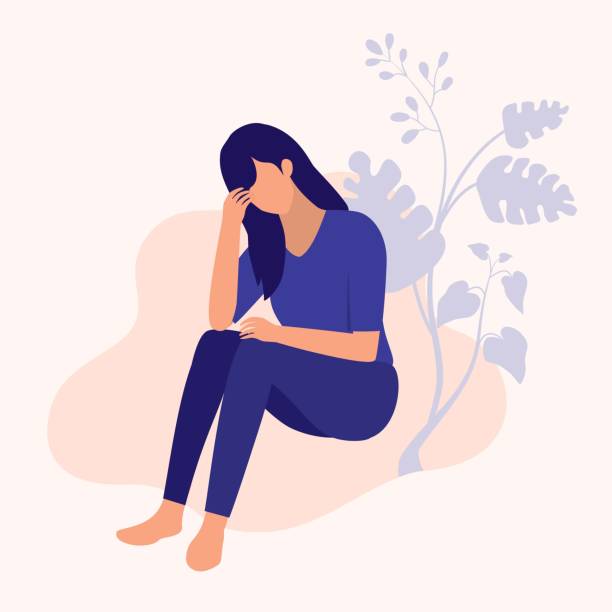
When Pregnant, When Do You Get Your First Ultrasound?
A mother’s joy begins when new life is stirring inside, when a tiny heartbeat is heard for the first time, and a playful kick reminds her that
The morning-after pill, also known as emergency contraception or Plan B, is a form of birth control that can be taken up to 72 hours after unprotected sex. It prevents ovulation or fertilization and can also thicken the cervical mucus to prevent sperm from reaching an egg.
The importance of the morning-after pill lies primarily in its role as a crucial safeguard against unplanned pregnancies. The ability to take emergency contraception following unprotected intercourse or contraceptive failure provides an essential safety net for women. In addition, it can empower individuals by affording them more control over their reproductive health.
However, it’s important to remember that the morning-after pill is not intended as a regular contraception but as a backup plan in unexpected situations. Choices Women’s Clinic, a non-profit organization dedicated to reproductive health and rights, reports that the morning-after pill is safe for most women.
This blog post will discuss everything you need to know about the morning-after pill, from how it works to its effectiveness and potential side effects. We will also address common misconceptions and provide information on where to obtain emergency contraception.

The Morning After Pill or Plan B One-Step Levonorgestrel-based Pill is an emergency contraception designed to prevent pregnancy after unprotected sex or contraceptive failure (such as a condom breaking).
It contains either levonorgestrel (Plan B One-Step and Take Action) or ulipristal acetate (Ella). While often referred to as the ‘morning after’ pill, this name is slightly misleading; this method can be used up to 72 hours after unprotected sex with progestin-only pills or up to 120 hours (5 days) with ulipristal acetate.
However, it’s most effective when taken as soon as possible after unprotected intercourse. It’s important to note that the Morning After Pill is not an abortion pill and will not be effective if a woman is already pregnant. It simply works to prevent pregnancy from happening in the first place.
The most common reason for using the Morning After Pill is to prevent pregnancy after unprotected sex. This could be due to a contraceptive failure, such as a condom breaking, slipping off, or forgetting to take your regular birth control pill. It may also be used in cases of sexual assault or coercion, where the individual does not have control over the use of contraception.
The Morning After Pill is typically used in emergency or unplanned situations. These could encompass a range of scenarios, such as contraceptive failure (for example, a condom breaking or slipping), missed or forgotten emergency contraception pills, or unprotected sex. It offers a safety net for women, allowing them the chance to prevent an unwanted or unplanned pregnancy.
The Morning After Pill is also an accessible option when regular forms of contraception are not available or suitable. It can be purchased over-the-counter at pharmacies, health clinics, and online without a prescription. This makes it a viable option for women who may not have easy access to other contraceptive methods or who are traveling and need emergency contraception.
The primary reason for using the Morning After Pill is to reduce the risk of pregnancy after unprotected sex or contraceptive failure. The sooner it is taken after such an incident, the more effective it will be. The Morning After Pill works by delaying or preventing ovulation (the release of an egg from the ovary). If an egg has already been released, the pill will not be effective. Thus, it’s not a guarantee against pregnancy but significantly lowers the risk.
Finally, the Morning After Pill represents a choice for women. It gives them control over their bodies and reproductive health, empowering them to make the best decisions in each unique situation. In a world where women’s reproductive rights are often debated, having access to emergency contraception like the Morning After Pill is critical to women’s health care.
The Morning After Pill, also known as emergency contraception or the “day after pill,” is an emergency birth control method that can be taken after unprotected sex or contraceptive failure to prevent an unwanted pregnancy. It often comes in the form of a single pill containing hormones that delay or prevent ovulation, reducing the risk of pregnancy. Here is how it works:
The Morning After Pill, which she often called an emergency contraceptive pill, functions primarily by delaying or preventing ovulation — releasing an egg from the ovaries. It contains levonorgestrel, a synthetic version of the female hormone progesterone. When taken correctly, this hormone can inhibit the ovulation process, thus reducing the chance of a fertilized egg implanting itself within the womb.
Timing is a vital factor in the effectiveness of the Morning After Pill. Ideally, it should be taken within 72 hours post-unprotected sex. The sooner it is consumed, the more effective it is. If taken within 24 hours, the pill’s effectiveness is approximately 95%. However, the effectiveness decreases to around 85% if taken between 25 and 48 hours and 58% within 49 to 72 hours.
It’s important to note that the Morning After Pill is not intended as a regular form of contraception. It’s designed for emergencies, such as when a condom breaks or unprotected sex. Regular use of the Morning After Pill can lead to side effects, including menstrual irregularities.

The Morning After Pill does not terminate a pregnancy that has already been established. If the egg has been fertilized and implanted before taking the pill, it will have no effect. It’s not an abortion pill and cannot harm an existing pregnancy. Moreover, it doesn’t affect future fertility. A woman’s regular menstrual cycle should resume in the next month.
The Morning After Pill, also known as emergency contraception, offers several benefits for individuals at risk of unintended pregnancy. This highly effective form of contraception can be taken within a specific timeframe after unprotected sex or contraceptive failure, providing additional protection and peace of mind.
By preventing or delaying ovulation, the Emergency Contraception Pill helps to reduce the chances of fertilization and implantation, offering a safe and reliable option for those seeking to prevent pregnancy after a contraceptive mishap or unplanned sexual encounter.
One of the primary benefits of the Morning After Pill is its immediate availability. It represents a second chance for women to prevent unwanted pregnancy after unprotected sex or contraceptive failure. This immediate intervention can ease anxiety and reduce the potential risks and costs associated with an unplanned pregnancy.
Unlike surgical interventions, the Morning After Pill poses no serious health risks. The most common side effects, including nausea, fatigue, or minor abdominal discomfort, are mild and temporary. The pill doesn’t risk long-term fertility; regular menstrual cycles should resume promptly.
The Morning After Pill provides a discreet solution for emergency contraception. It can be obtained over the counter without a prescription, offering privacy and independence in managing reproductive health. This level of discretion can be particularly beneficial for individuals who may feel uncomfortable discussing their situation with others.
Accessibility is another significant advantage of the Morning After Pill. It’s widely available in most pharmacies and doesn’t require a doctor’s appointment or prescription, making it a swift and convenient option. Moreover, compared to the cost of an abortion or the expenses involved in raising a child, the Morning After Pill is a highly affordable option.
When taken promptly, the Morning After Pill is a highly effective method of preventing pregnancy. Within 24 hours of unprotected sex, the effectiveness rate can be as high as 95%. This efficacy decreases over time, but even within 72 hours, it can still prevent most potential pregnancies.

Finally, the Morning After Pill empowers women by giving them control over their reproductive health. It provides a valuable tool for women to manage unplanned situations, contributing to their autonomy and personal freedom. It signifies a crucial step in the fight for women’s reproductive rights and health.
Despite its numerous benefits, the Morning After Pill, also known as emergency hormonal contraception, has some potential drawbacks that should be carefully considered. These drawbacks include possible side effects such as nausea, headaches, and changes in menstrual bleeding patterns.
Individuals need to weigh the advantages and disadvantages of using this contraceptive method and consult a healthcare professional to make an informed decision.
Like any medication, the Morning After Pill may cause side effects in some individuals. These can include nausea, abdominal pain, headache, and fatigue. While these symptoms typically subside within a few days, they can still be uncomfortable for users.
While the Morning After Pill is highly effective in preventing pregnancy, it does not protect against sexually transmitted infections (STIs). Therefore, it’s essential to use additional forms of contraception, such as condoms, to reduce the risk of contracting an STI.
While the Morning After Pill is generally safe, it may cause some side effects. These can range from mild symptoms such as nausea, fatigue, and headache to more severe effects like abdominal pain or heavy menstrual bleeding. These side effects are usually short-lived but can cause discomfort and worry.
It’s important to note that the Morning After Pill is intended as an emergency measure, not a regular form of contraception. Frequent use of the pill can disrupt the menstrual cycle, and its effectiveness can decrease with repeated use within the same cycle. Misconceptions about its use can lead to improper handling of reproductive health.
The accessibility of the Morning After Pill, while a benefit, can also lead to its misuse. Some individuals may use it as a substitute for regular contraception methods, resulting in an increased risk of unplanned pregnancies due to the pill’s decreased effectiveness over time.

The Morning After Pill can also have psychological impacts. The stress and worry of potential pregnancy following unprotected sex can be significant, and the pill doesn’t alleviate this completely, given it’s not 100% effective. This can lead to anxiety and emotional distress, particularly when waiting to confirm whether the pill has been effective.
Lastly, the Morning After Pill often sparks debates over ethical and moral issues, particularly in societies with strong religious beliefs about contraception and the start of life. Many argue that the availability of emergency contraception encourages irresponsible sexual behavior, which can lead to societal and cultural disagreements.
While the Morning After Pill has many benefits, it’s important to consider these potential drawbacks. The key is informed and responsible use, emphasizing the pill as an emergency measure, not a regular contraceptive method.
The decision to take the morning-after pill is personal, based on individual circumstances. It must be stressed that the pill should not be viewed as an everyday contraceptive method but rather be reserved for emergencies.
While it provides a safety net against unplanned pregnancies, its effectiveness decreases with frequent use within the same cycle, making it less reliable than regular contraception options. Moreover, it doesn’t protect against sexually transmitted infections, making condoms necessary. The psychological implications must also be factored in, as the anxiety related to its use can be significant.
Ethical and moral considerations play a role, too, particularly in certain cultures and societies. These aspects reinforce the need for comprehensive sexual education, focusing on safe and responsible sexual behavior and the correct use of contraceptives. Remember, it’s always best to consult a healthcare provider when deciding sexual and reproductive health.
In conclusion, the morning-after pill presents a viable emergency contraceptive option, offering a second line of defense against unplanned pregnancies. However, its use comes with considerations and potential drawbacks. It is not a substitute for regular contraceptive methods; its effectiveness can decrease with repeated use and offers no protection against sexually transmitted infections.
Therefore, its use should be informed, responsible, and ideally, under the guidance of a healthcare provider. Ethical and cultural factors also play a significant role in decision-making, necessitating a broader discussion and education about reproductive health.
In sum, the morning-after pill is a valuable tool in reproductive health, but it’s not without its complexities, reinforcing the need for education, understanding, and responsible use. Choices Women’s Clinic and Health Center offers comprehensive sexual and reproductive health services, including access to emergency contraception. Contact us today.

A mother’s joy begins when new life is stirring inside, when a tiny heartbeat is heard for the first time, and a playful kick reminds her that

Carrying a baby is the most rewarding experience a woman can enjoy. But having a baby also comes with its challenges, including pregnancy insomnia. Pregnancy

At Choices Women’s Clinic, we understand the challenges that unexpected pregnancies can bring, and we are committed to providing a supportive environment for individuals facing

Boundaries are the psychological and emotional lines we draw between ourselves and others to ensure our safety, well-being, and happiness. Healthy sexual boundaries in a relationship

People usually use the terms STI and STD interchangeably, but there is a difference between them. STI stands for sexually transmitted infection, while STD stands

It seems like from the moment you learn about sex at a young age, the pressure to have sex is on. Whether you are single,
